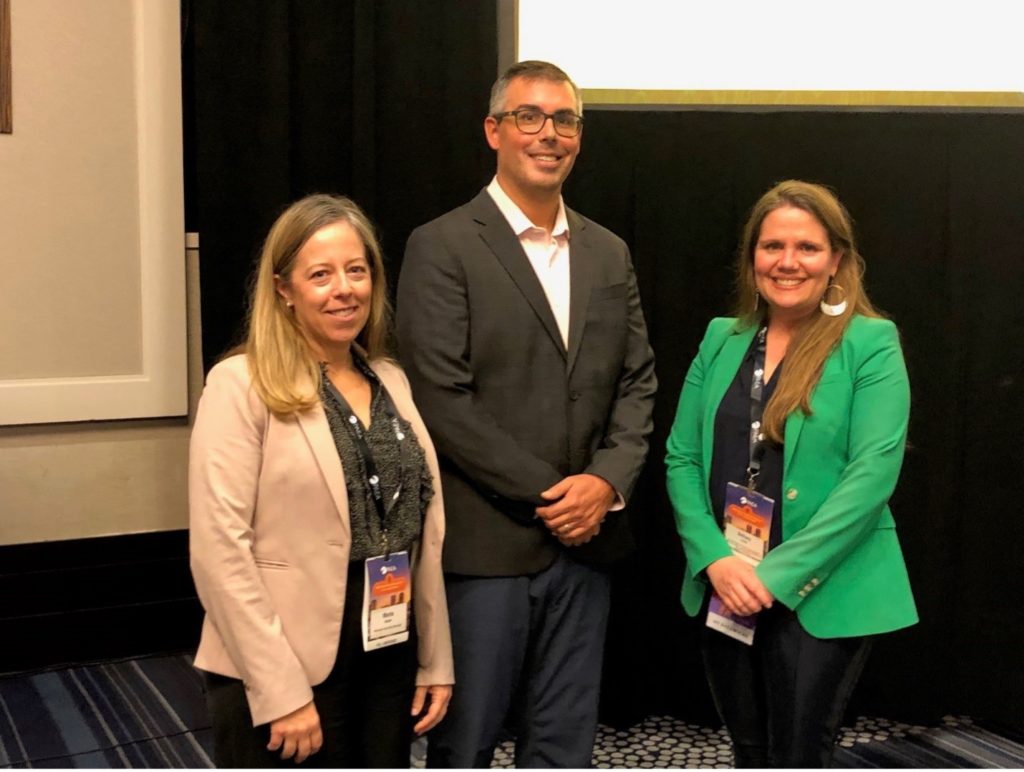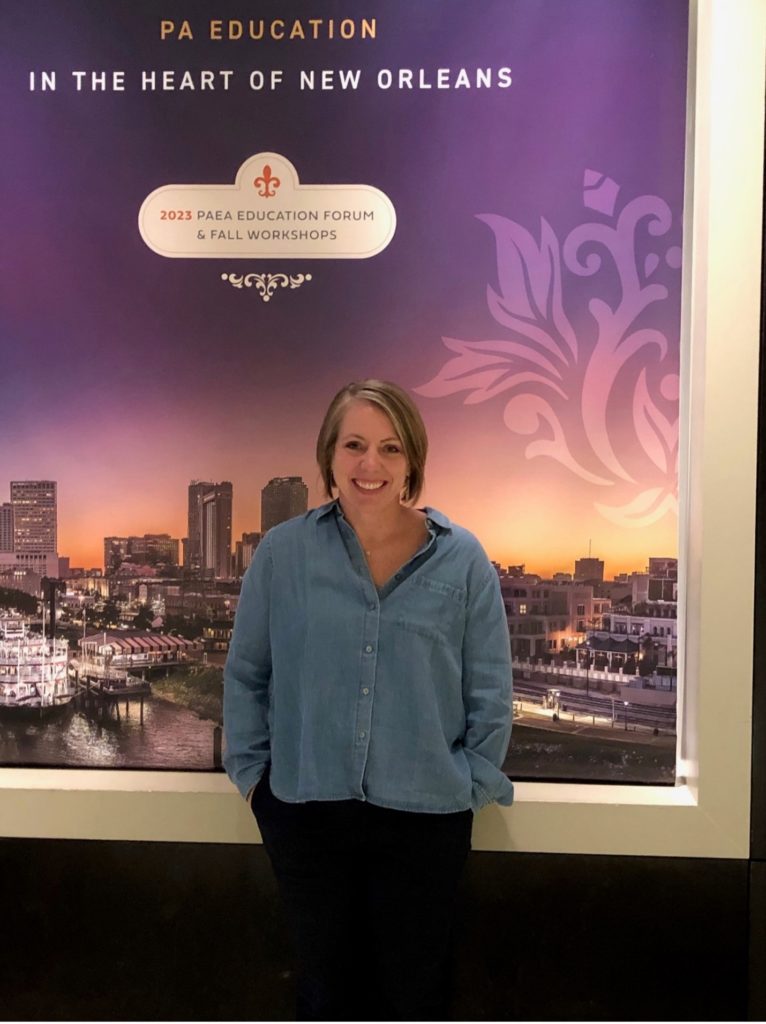Fellows Share Research at Forum
At the 2023 PAEA Education Forum, AAPA-PAEA Research Fellows Bethany Grubb, MPAS, MPH, PA-C, and Chris Roman, DMS, PA-C shared their initial research findings, while our new fellows, Marcia Bouton, DMSc, MHPE, PA-C, Quincy Jones MSW, LCSW, MHS, PA-C, and Hayden Middleton, DMSc, PA-C introduced their research projects.

In her project, “Competencies, Styles, and Strategies of PA Leadership in Healthcare Executive, Clinical, and Academic Roles,” Grubb and her team identified quantitative and qualitative measures to characterize leadership within the PA profession. Her team found that PAs lead with a collaborative/democratic or servant/transformational style and are strong listeners and motivators, who value clear communication, creating psychological safety, and setting goals and expectations.
Respondents struggle with conflict management, setting boundaries, and being critical. They wished that they had initially known more about project management and navigating toxic work environments, as well as possessing increased confidence prior to their leadership role. To cope with these obstacles, PAs use self-reflection and giving/receiving positive and negative feedback, the research showed.
Grubb asserts that because health care happens in a team environment, PAs need to gain the skills and experience to take on leadership roles. She recommends that leadership theory and practices be added to the PA didactic and clinical curriculum and that PA educators recognize the importance of mentorship on the path to leadership.
In Dr. Roman’s study, “PA Access to Provider Health Programs,” he investigated the availability of information about provider health programs (PHPs) to support PAs experiencing impairment due to substance use or a physical or mental health issue. He and his co-investigator and 2020-2021 AAPA-PAEA Research Fellow, Stephanie Neary, MPA, MMS, PA-C, found that while every state has, or will soon have, a PHP for PAs, no information about PHPs is posted on constituent organization/licensing board websites in many states.
Advocacy efforts will be needed to increase awareness and address real or perceived barriers to care.

Dr. Roman has presented his research to constituent organizations and state governments, which has increased awareness and accessibility to PHP resources. As a result, some states have added PA students to their PHPs. He plans to continue to advocate for more resources, access, and support for PAs.
Dr. Bouton is studying how the incidence of PA student mistreatment has changed over time, and how students with marginalized social identities are affected by this change. Her study, “An Intersectional Approach to Understanding Mistreatment Among Diverse Physician Assistant Students,” uses sophisticated research methods to evaluate the risk of PA student mistreatment based on the regional or PA program variation as well as socially marginalized identities.
Jones is exploring differences in the implementation of sexual and gender minority (SGM) curricular content across PA education in her study, “Sexual and Gender Minority Content in PA Education.” She is advancing her STAR Program research. Jones added questions on the Program Survey about how much content related to caring for lesbian, gay, bisexual, transgender, and queer (LGBTQ) populations that PA programs included in their curriculums, where in the curriculum it was taught, and barriers that programs experienced. Her Fellowship project explores the variations in content delivery by program location or institution type.

Dr. Middleton was unable attend this year’s Forum, but he recorded a presentation that was shown during the first session of the AAPA-PAEA Research Fellowship Presentations. He is investigating the factors that influence the use of this dermoscopy in PA practice.
Through his study, “Dermoscopy Use Amongst PAs in the United States,” Dr. Middleton seeks to educate both PAs and PA students in dermoscopy and identify barriers to practice to determine how it can be more widely adopted in PA practice. He looks forward to sharing his research findings in person next year.
PAEA is proud of the fellows’ work and is excited to see how they advance PA education and the profession.
If you are interested in learning more about the fellows or this program, please visit the AAPA-PAEA Research Fellowship web page.




